How is the life of a Westerner who runs an NGO in India?
Working for an NGO is no easy job and running one simply requires one to dedicate their entire life to a welfare mission. Selflessness is the number one criterion to be able to work for the good of others and not everyone can achieve the same. If running an NGO in itself is an outrageously difficult job, running it in a foreign nation is unfathomable.
On my all-India cycle tour, I had the wonderful opportunity of meeting Mr Robert Lyon a UK-based individual settled in Goa, India, for the past few decades. The first time I got to know that a foreigner was running an NGO for the education of kids from slum areas across Goa, I wanted to know what went on in his mind to initiate such a task. Any reason I could come up in my mind mystified me.
Meeting Rob and discussing with him his work, I realized what it takes for a foreigner to run an NGO in India. The little time I spent with him was fruitful and informative. Many of his reasons to work in India and the difficulties he faces even to date are nothing like I imagined them to be.
So, how is the life of a Westerner who runs an NGO in India?
Table of Contents
ToggleWhy does a Westerner decide to start an NGO in India?
Robert was initially a computer programmer who came to India in 2003 to work at an NGO upon being invited by his ex-girlfriend Shameena. After working there for a couple of months, both of them realized that the ideas of the NGO they worked for were not in line with their thoughts. So the both of them went back home and asked themselves why not start an NGO on their own?
In 2004, Robert came back to India and started an NGO by the name Children Walking Tall. He wanted to help children from underprivileged families have an education. Robert said that Shameena married a Lebanon and left while he decided to stay back and continue. The idea of Children Walking Tall was to provide education and healthcare to underprivileged children from the slum areas of Goa.
How long does it take for a Westerner to establish an NGO in India?
From 2004 to 2011, Robert worked relentlessly to help the slum children after which he decided to take a break for a couple of years. The NGO organization got converted to Mango Tree Trust which still exists to date. When asked if the new organization is doing justice, Robert replied saying “Not entirely in line with my thoughts, but it is okay”. He shrugged. Something was better than nothing.
Robert only attempted to take a year and a half break. It didn’t exactly go as he planned. As he had built the rapport with the locals around, now and then a couple of them would come over and request help. A couple at a time always kept him busy. He realized that he couldn’t sit idle. So in 2013, he started the Goa Outreach organization which he runs to date. The organization is based on the same ideologies he had as before. Education and healthcare to the underprivileged slum kids.
Robert said he had 50 kids who he helped when he ran the previous organization and in this one, a total of 117. In the last 10 years, he has helped multiple kids get educated. He made sure most cleared 10th and 12th. Some of them went on to do an engineering degree and some even Master’s. In between, Robert helped multiple kids with their healthcare. Kids with Leprosy and ones who suffered burns have been covered by hospitals. He also got the teeth fixed for all the children and had them wear braces. He has offered rations to all the families of these kids who come to the outreach centre.
What are the difficulties that a Westerner faces in starting an NGO in India?
I asked Robert to explain to me some of the difficulties he faces running the organization. For the next 5 minutes, he didn’t have to think much about what he had to say. It was as though everything was contained within him and it spilled out. It was in no particular order but it came out one after the other.
Visa
Many times we think that it is only we Indians who are looked at as terrorists when we apply for a Visa to a Western country. I learnt from Robert that a Westerner also finds it equally hard to get an Indian Visa if one stays here for long. This was Robert’s first and prime complaint.
Donations
In India, as we know it, people offer goods and not cash. He said he receives a lot of what is not required and then it becomes a task to segregate them out. Donations in the form of cash would have helped immensely.
Somewhere between, Goa Outreach turned out to become the place where people donate clothes. As I went through the Google page on Goa outreach I could see that clothes were being donated in plenty. I asked Robert why he started receiving clothes. He shrugged his shoulders and said he didn’t know how it all happened too. Somebody did it first and spread the word. Now he couldn’t help it. Everyone started doing the same. He said most of the time the clothes he receives are old and too large for the children. He keeps requesting people not to donate old and large clothes. But as it happens a lot of clothes get dumped at his place.
Robert segregates them and makes useful stuff such as bags stitched from these old clothes. Segregating the clothes is a hassle he said.
Locals trust
Robert said it took a lot out of him to build the locals trust. Although this happened Initially, he still faces issues with the locals trust many times.
Sponsorship
Approaching big companies and having them donate to the cause is another big task. Many times he ends up disappointed.
Family
Robert has his mom and his sister back home in the UK. It has been 3 years since he went home last. He says it becomes really hard to convince his family about what he does and the little time he gets to meet them. His mom unfortunately has fallen sick and he said he isn’t able to find the time to go home.
Sustenance
Robert lives in a rented house that he pays 12 thousand a month for. I asked him how he is able to sustain himself, to which he replied “We are struggling”. I was saddened to listen to it. All the while Robert had a cheerful smile on his face even when explaining about the problems. That spoke volumes about him.
Help
Robert said he is doing everything single-handedly. A pair of hands would help, and most importantly a break from the work would as well. A child he helped from the age of 3 by the name Ameena, graduated from college and is currently helping him with desk work. He said, to run an organization like this successfully one needs more working hands.
Girl children
Robert told it is extremely hard to convince parents that girls too deserve to be educated. The moment they turn 18 they are married off and education comes to an immediate halt. He complained about how education is valued less in the case of a girl child.
COVID
After the onset of COVID, the help that they would receive has gone down. I asked Robert why that was. He wasn’t clear but told me that a lot of people have gotten poorer and resources pooled are also being used elsewhere. From the time COVID struck the help has gone down many folds.
Art is underrated
He told me this handing me a drawing of one of the kids. Some kids are born talented. They can do such things without any formal training. One could only imagine how much better they would be had they received formal training.
Expensive commodities
Robert rolled his eyes explaining everything is turning expensive. Many things that were handed out to children earlier are becoming far too expensive to afford any more.
Lack of time
Robert is so held up with work that he finds it impossible to make time for himself or learn something new. On one fine day, he had some of his friends come over who shot a couple of 1-minute clicks and edited them to a fine feature video for the organization. Robert wished he could do such stuff by himself. He told me as he is ageing (turned 50 this year), his scope of learning is reducing as well.
Feature videos: head to this page to view the videos.
Goa Outreach https://g.co/kgs/u5483C
What is the mindset of a Westerner NGO worker in India?
It was a pleasure meeting Robert. I simply navigated to his place and knocked on his door. He could have easily turned me down as he wasn’t feeling very well at the time. But he offered me his time without the hope of me helping him in any way and offered to speak with me. I wanted to understand the character he was. I continued and asked some questions on his personal front.
Justifications
On being asked why he didn’t choose any other profession when he was capable of it, Robert simply said he enjoyed what he was doing. That was the best justification he had to give. I was curious to know why Goa exactly when he could do it anywhere else. Robert said that one has to start somewhere. For him, he took up the first thing that came to his hands. It seemed like Robert had blown with the wind. Allowed the circumstances to dictate his destiny rather than take circumstances into his hand and force it in any particular way. The best part is that he enjoys the show without any regrets about his choices to date.
Validations
I asked Robert “Where do you get your validations from?”, He replied, “When parents of these children come over and thank me, I do”. Some thank him and cry with folded hands. He feels good that he could contribute. I learnt that not all validations have to come from our family or friends. It need not even be from the surrounding society. It could simply be from the people you choose to help. Such was the case with Robert.
Complaints
Sorting out the VISA definitely is at the top of the list of Robert’s complaints. Apart from that, he said it would really help him if could get an AC. I was drenched in sweat myself, I could only imagine his plight. He said he hopes to get an AC someday. I could see the compromises he was making in his eyes. A Westerner who could easily live a comfortable life back home struggling in India for the sake of kids summed up Robert’s life.
Materialism
I asked Robert what he would do if he was handed a large sum of money. He immediately jumped at the answer. Buy a house on the plot beside. He asked me if I had come over to the place as he explained how beautiful the house of the plot was. He immediately shrugged and said, “I wished”.
After he was done with that, he told if he had any money left, he would want to take all the children abroad for a short trip. He wants to give them knowledge about how life is outside. Let them know what they are missing out on. Broaden their perspectives.
I thoroughly enjoyed a wonderful conversation with Robert. I walked out thinking about what dedication is and what it could do for someone. The other thing that struck my mind was what one has to choose. Whether to let probability take over our biggest choice in life, or to simmer down and wait until we figure out what is best for us.
Of the many people I met, very few let probability take control of them. One person who made sure probability didn’t run his life was a scheduled tribal (read this article).
I am a 31 year young PhD graduate who has decided to travel the length and breadth of India on my cycle, to document the journey of meeting a vast array of people. In my journey, I intend to understand the characteristic features of the people of this nation and categorize them based on their demographics, age, profession, gender, traditions, and cultural differences.
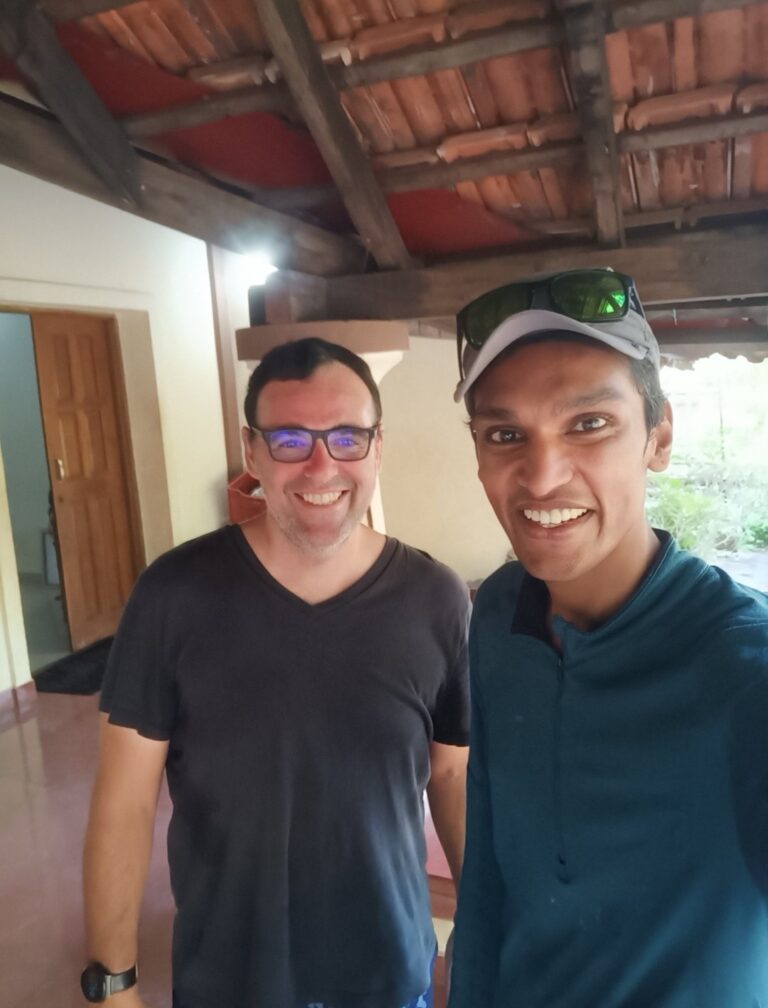
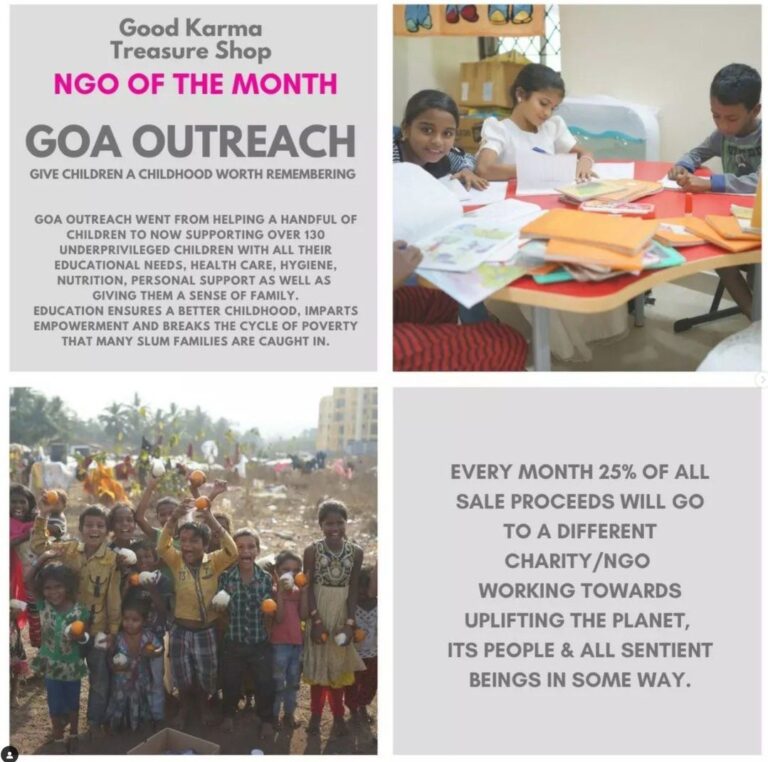

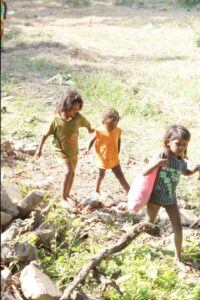
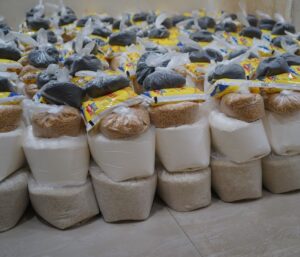
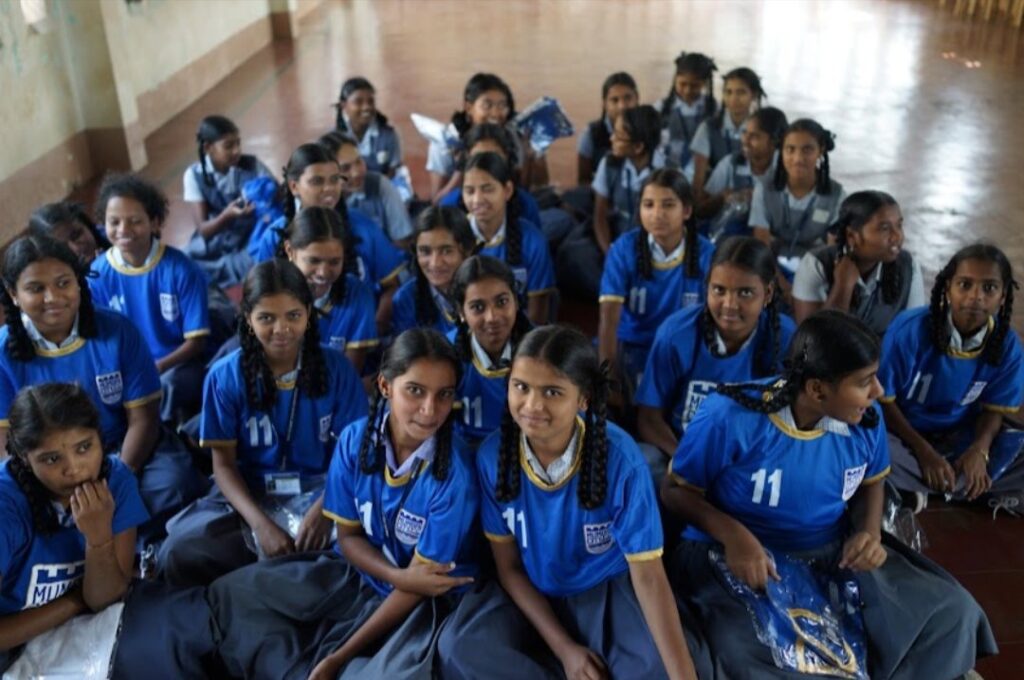
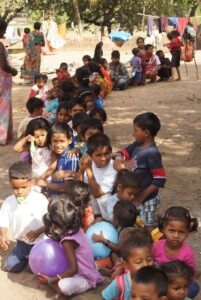
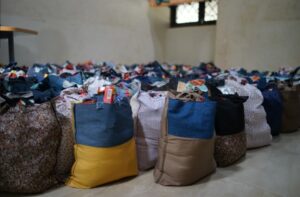

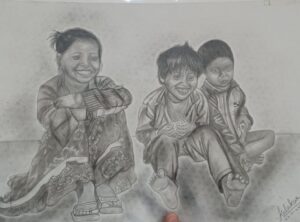
Speechless….need to think deep and process my thoughts. Never expected this from a Goa trip